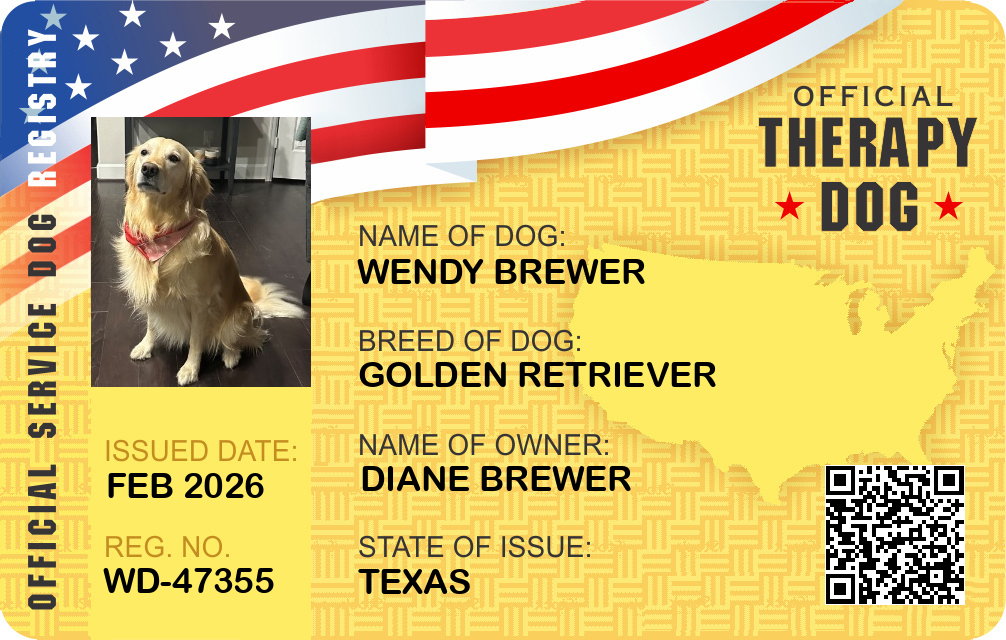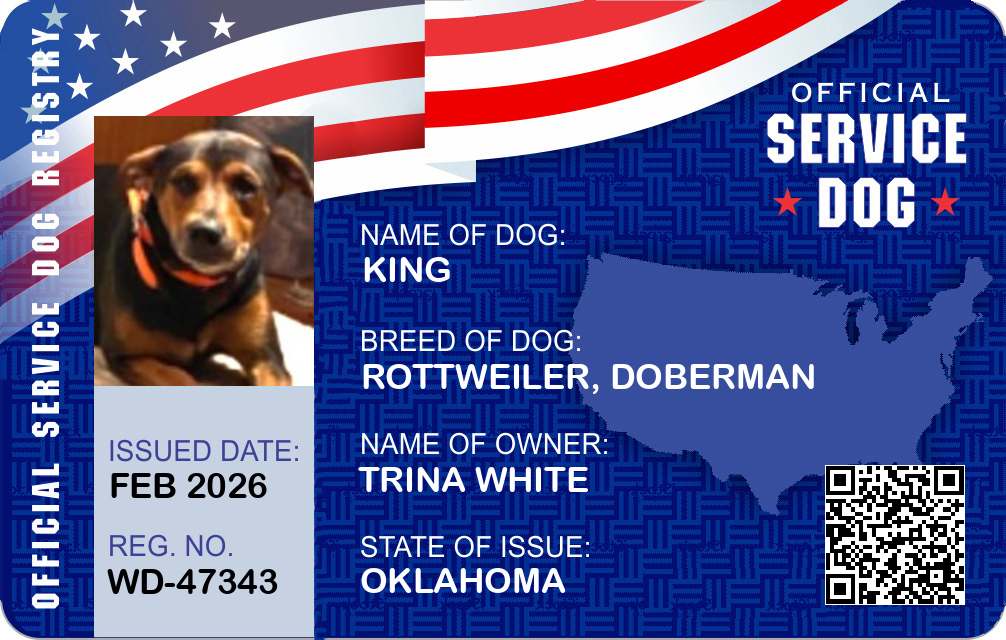Emotional Support Dog Information
What Is an Emotional Support Dog?
An Emotional Support Dog (ESD) offers comfort and emotional stability to people who live with anxiety, depression, PTSD, or other mental health challenges. These dogs do not need special training. Instead, they help simply by providing affection and consistent companionship.
How Emotional Support Dogs Help
Emotional Support Dogs can reduce stress, improve daily functioning, and create a calming presence during difficult moments. Many people notice better sleep, fewer panic symptoms, and more confidence in social situations. Because of these benefits, emotional support dogs continue to grow in popularity.
Who Can Qualify for an Emotional Support Dog?
To qualify for an ESD, a person must receive a valid ESA letter from a licensed mental health professional. This document confirms the emotional or psychological need for a support animal. It is also required for housing accommodations. Fortunately, any dog breed can become an emotional support dog, as long as it matches the handler’s lifestyle.
Rights and Limitations
Emotional Support Dogs have specific rights under the Fair Housing Act (FHA). Landlords must allow them in rental homes and cannot charge pet fees. However, ESAs do not have public access rights under the Americans with Disabilities Act (ADA). This means they cannot enter restaurants, stores, hotels, or other public places that prohibit pets. Understanding these differences helps avoid confusion.
Choosing and Caring for an ESA
Some breeds, such as Labradors, Poodles, and small companion dogs, adapt especially well to emotional support roles. Still, personality matters more than breed. Proper care, socialization, and routine help emotional support dogs stay happy and effective.
Register Your Dog Instantly
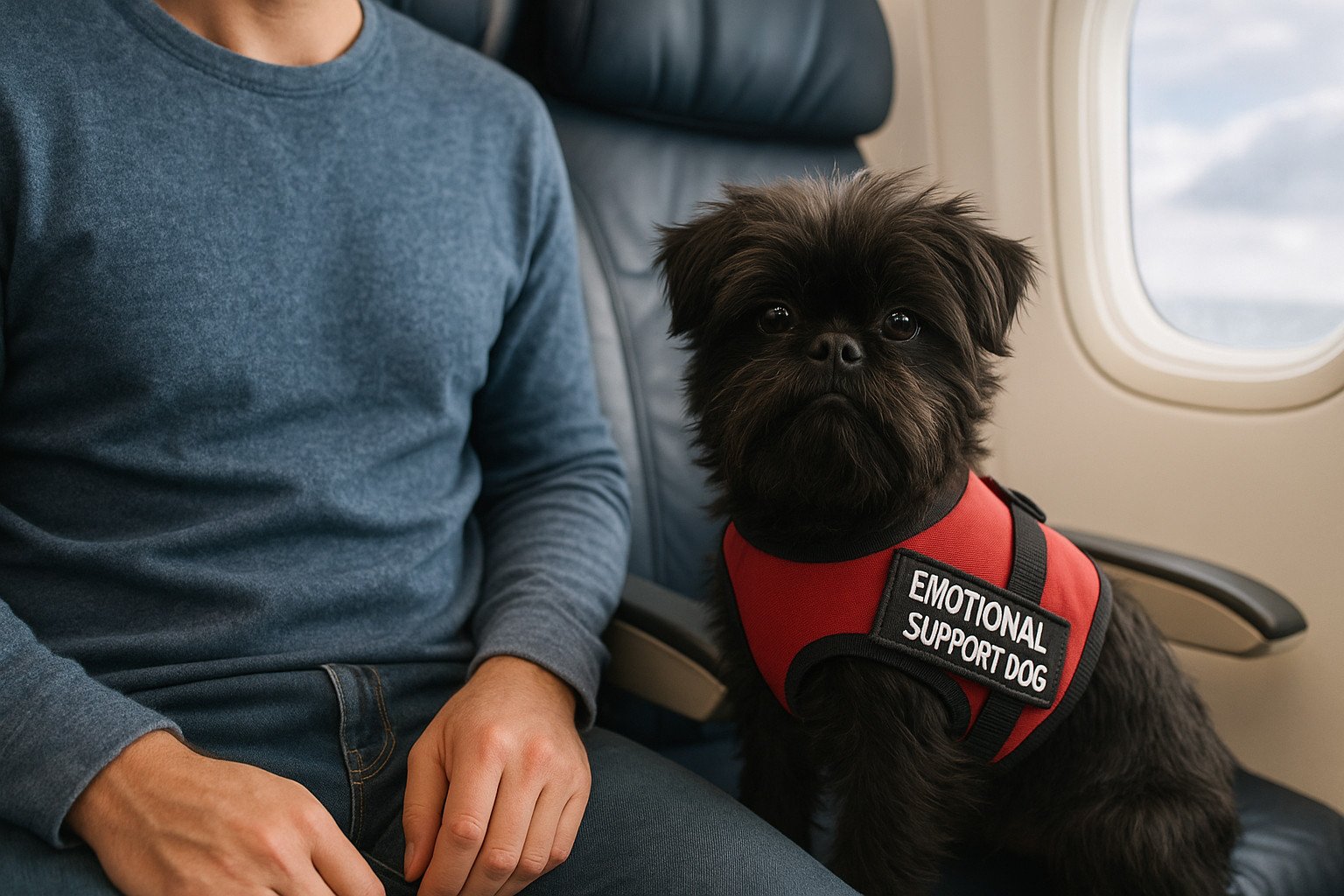
Affenpinscher as an Emotional Support Dog
Understanding the Emotional Support Role In a world where emotional support roles for animals are increasingly recognized and valued, certain…

Afghan Hound as an Emotional Support Dog
Emotional support animals (ESAs) play a pivotal role in enhancing the mental and emotional well-being of individuals facing psychological challenges.…

Airedale Terrier as an Emotional Support Dog
The Airedale Terrier, often dubbed the “King of Terriers,” is an intriguing choice as an emotional support dog. Their intelligence,…

Akita as an Emotional Support Dog
The Akita, a dignified and courageous breed, has long been celebrated for its loyal and protective nature. While traditionally regarded…
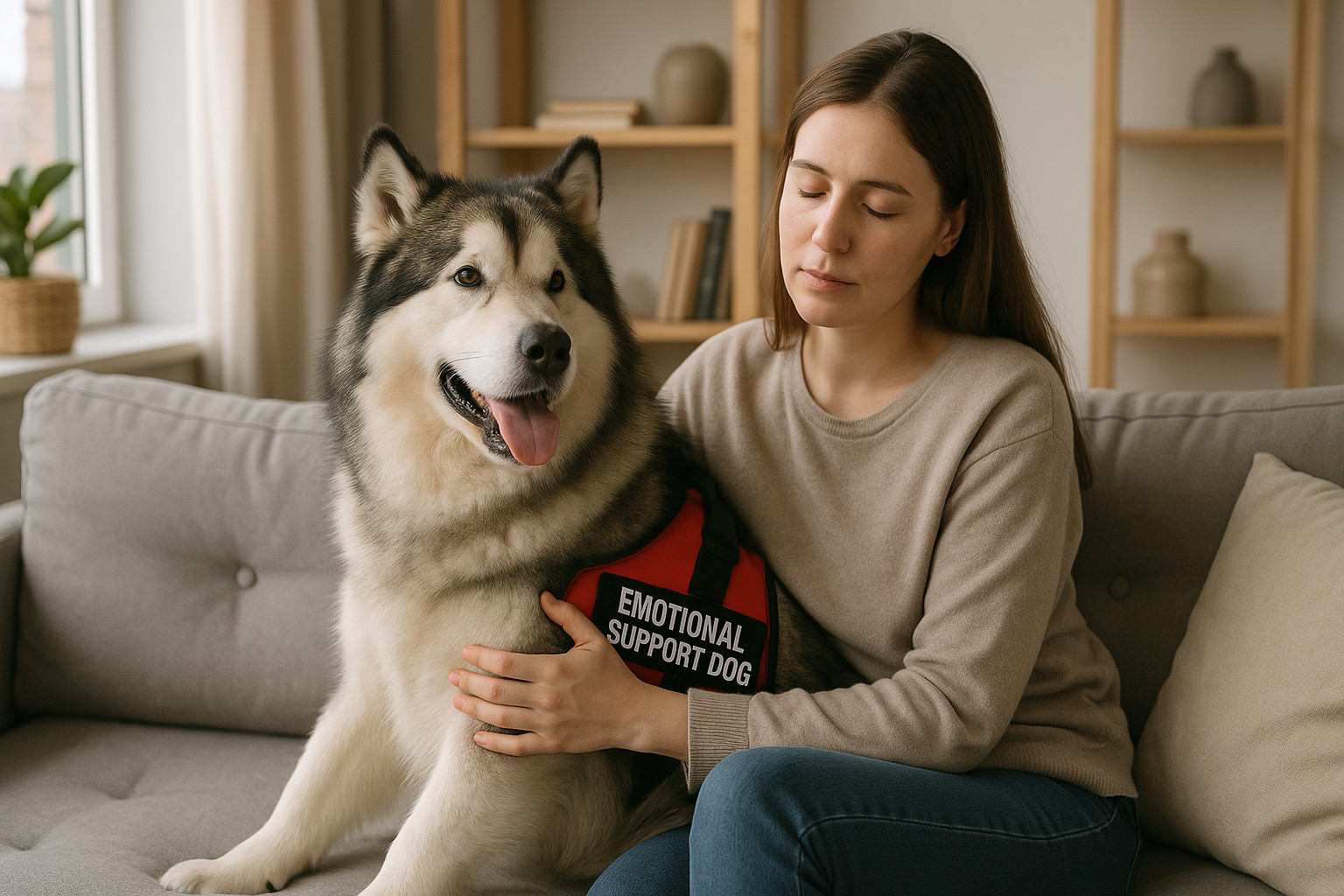
Alaskan Malamute as an Emotional Support Dog
Emotional support animals (ESAs) provide immeasurable comfort and stability to individuals experiencing emotional or mental health challenges. The Alaskan Malamute,…

American English Coonhound as an Emotional Support Dog
Understanding the Emotional Support Role The concept of an Emotional Support Animal (ESA) is remarkably distinct from that of a…

American Eskimo Dog as an Emotional Support Dog
In today’s world, emotional support animals (ESAs) offer irreplaceable companionship and emotional stability. When considering a breed for such a…

American Foxhound as an Emotional Support Dog
Understanding the Emotional Support Role As society increasingly acknowledges the emotional and psychological benefits of animal companionship, the concept of…

American Hairless Terrier as an Emotional Support Dog
Emotional support animals provide invaluable comfort to individuals facing mental health challenges, and choosing the right breed can significantly enhance…

American Staffordshire Terrier as an Emotional Support Dog
Emotional support animals (ESAs) play a vital role in providing comfort and companionship to individuals experiencing emotional or psychological challenges.…

American Water Spaniel as an Emotional Support Dog
Understanding the Emotional Support Role Emotional support animals (ESAs) play a crucial role in alleviating symptoms of emotional or psychological…

Anatolian Shepherd Dog as an Emotional Support Dog
Emotional support animals (ESAs) play a pivotal role in alleviating anxiety, depression, and loneliness in individuals. Among the various breeds…

Australian Cattle Dog as an Emotional Support Dog
In recent years, the role of the emotional support animal (ESA) has gained significant recognition for its ability to enhance…

Australian Shepherd as an Emotional Support Dog
The Australian Shepherd, known for its vibrant energy and deep-seated loyalty, is adept at providing unwavering emotional support. This breed,…

Australian Terrier as an Emotional Support Dog
Understanding the Emotional Support Role The role of an emotional support animal (ESA) is distinct from that of service or…

Azawakh as an Emotional Support Dog
The Azawakh, an ancient sighthound breed with its roots embedded deeply in the landscapes of West Africa, is gaining recognition…
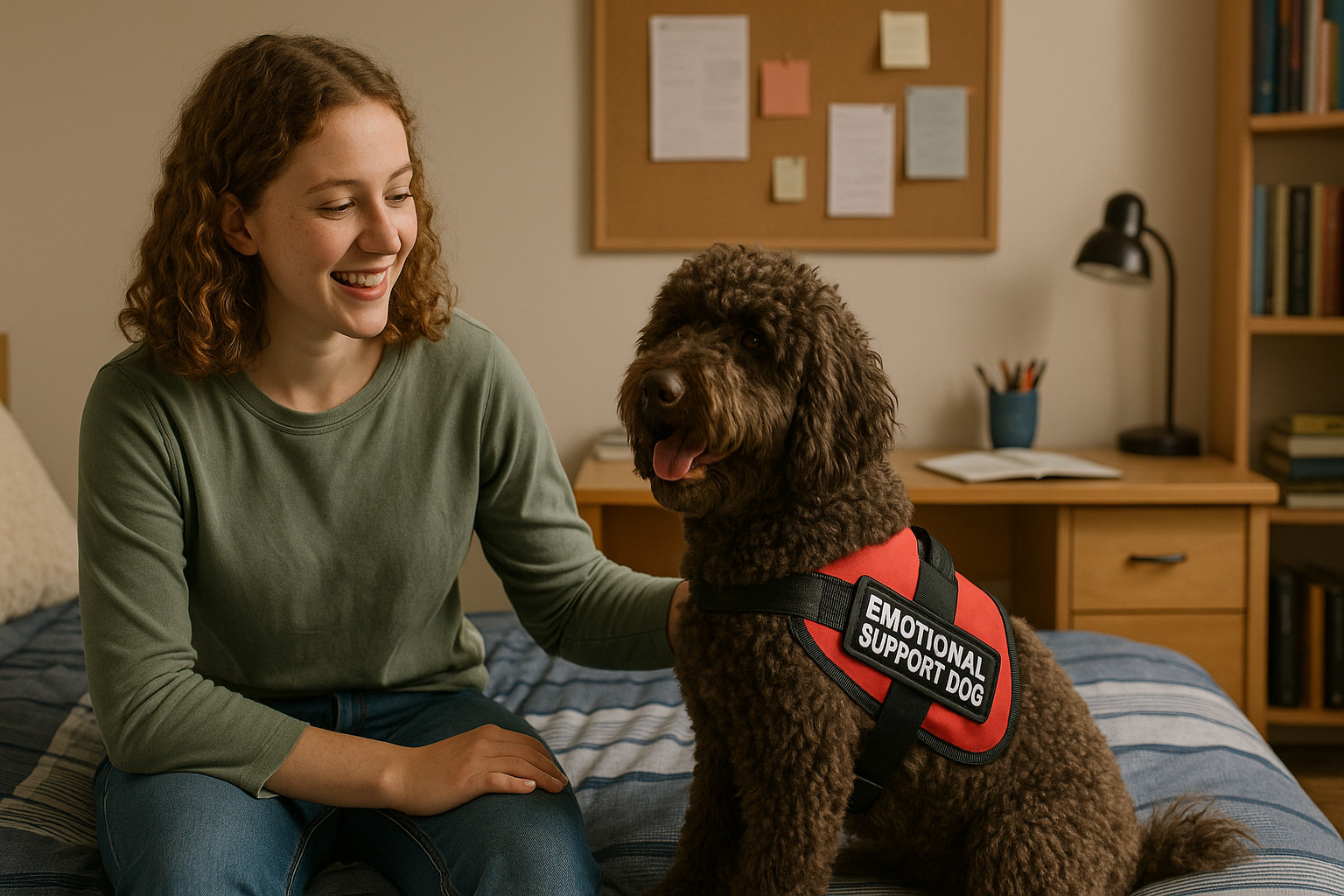
Barbet as an Emotional Support Dog
Emotional support animals (ESAs) have become invaluable to many individuals seeking comfort and companionship. Among various breeds available for this…

Basenji as an Emotional Support Dog
The Basenji is a unique breed known for its independence, intelligence, and distinctive personality. As an emotional support dog, this…

Basset Hound as an Emotional Support Dog
The Basset Hound, with its distinctive long ears and droopy eyes, is more than just a charming breed; it holds…

Beagle as an Emotional Support Dog
Understanding the Emotional Support Role When considering a dog as a potential emotional support dog, it is essential to focus…
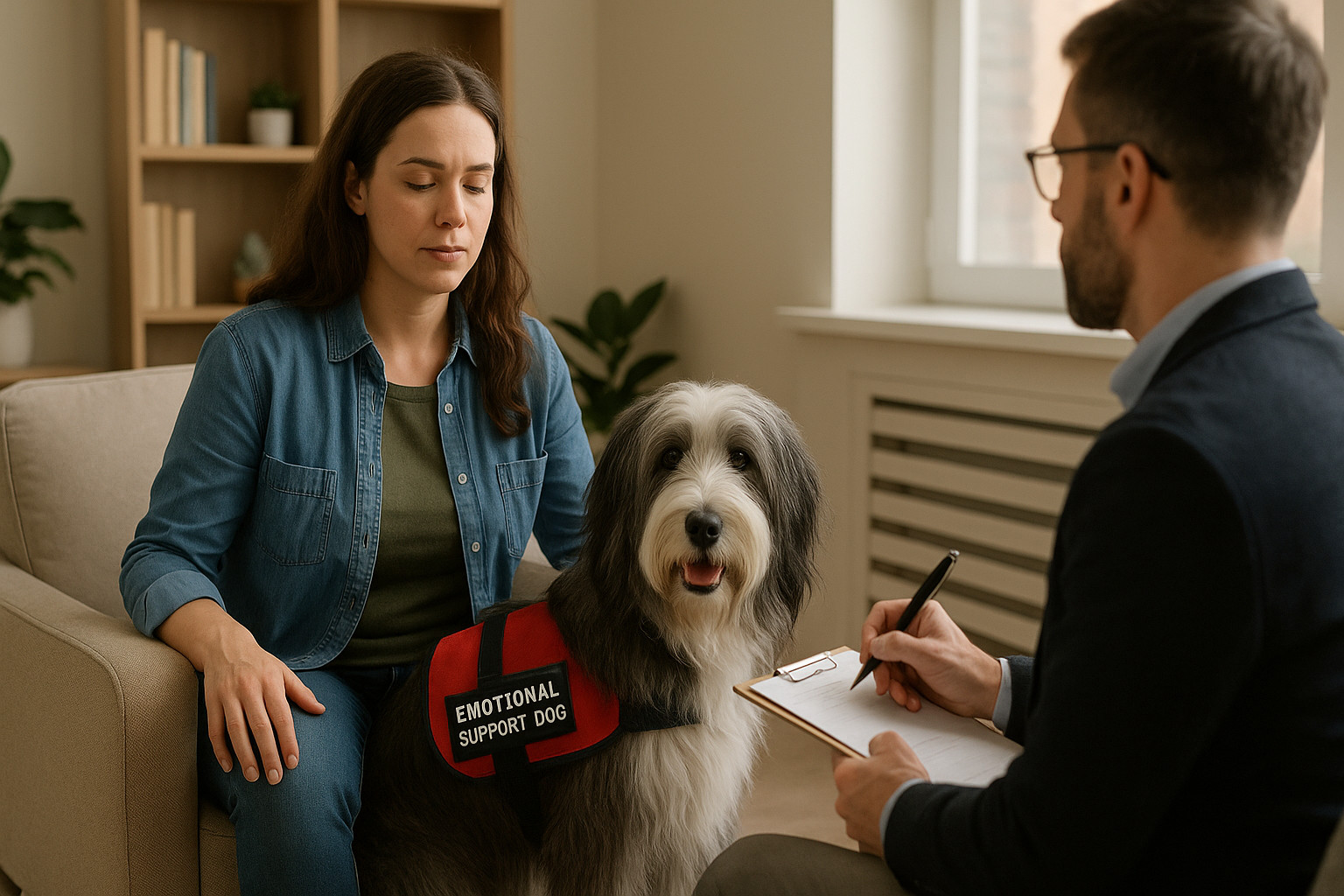
Bearded Collie as an Emotional Support Dog
The Bearded Collie, with its striking appearance and vibrant personality, can be an exceptional choice for an emotional support dog.…

Beauceron as an Emotional Support Dog
Understanding the Emotional Support Role Emotional support animals (ESAs) play a pivotal role in providing companionship and comfort to individuals…

Bedlington Terrier as an Emotional Support Dog
Understanding the Emotional Support Role Emotional support animals (ESAs) provide comfort, companionship, and relief from emotional and psychological symptoms. They…

Belgian Laekenois as an Emotional Support Dog
Emotional support animals (ESAs) have gained considerable recognition for their therapeutic benefits, providing solace and companionship to individuals experiencing a…

Belgian Malinois as an Emotional Support Dog
The Belgian Malinois has long been celebrated for intelligence, versatility, and unwavering loyalty. While they are conventionally associated with demanding…
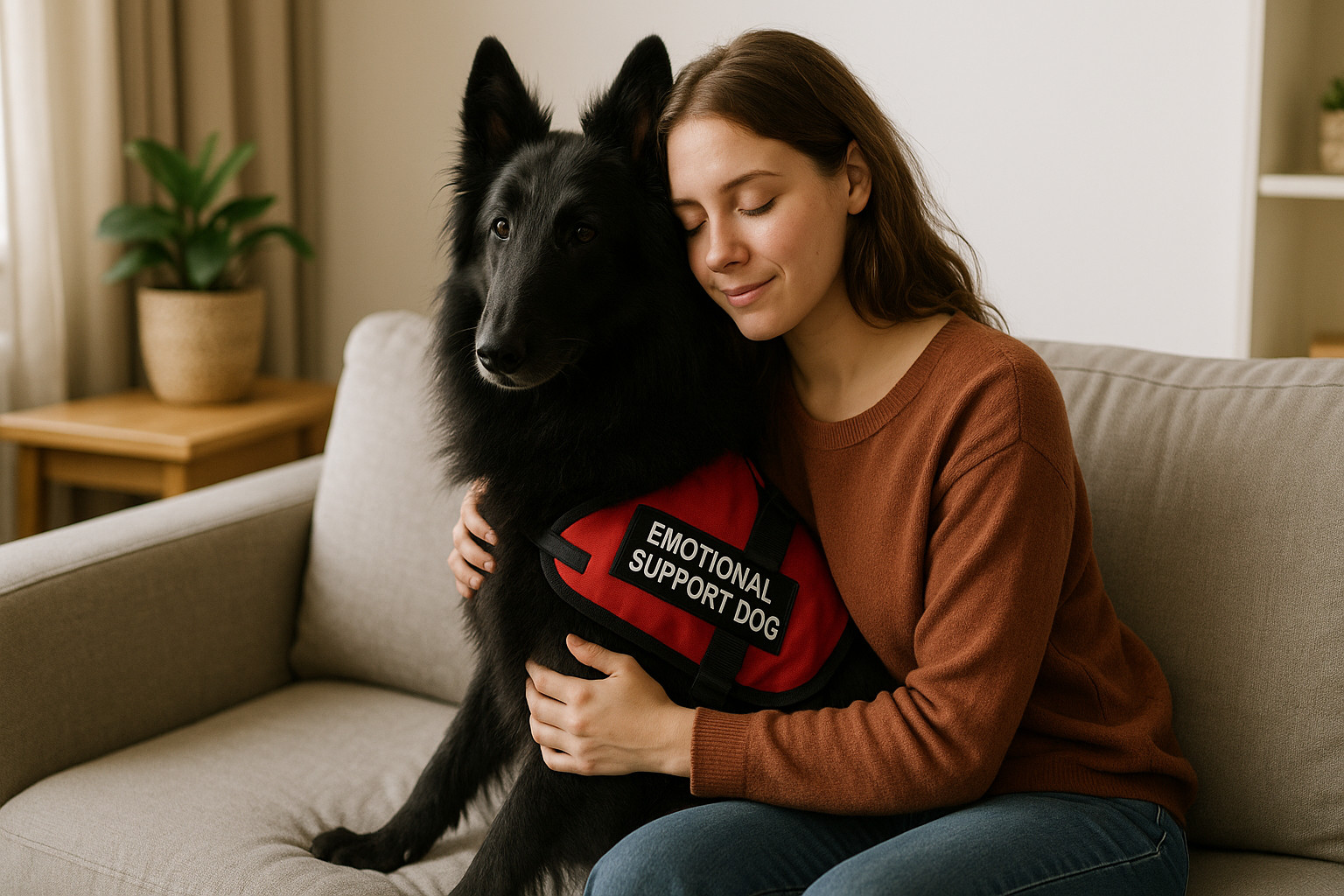
Belgian Sheepdog as an Emotional Support Dog
Understanding the Emotional Support Role Emotional support animals (ESAs) play a critical role in human well-being by providing comfort and…
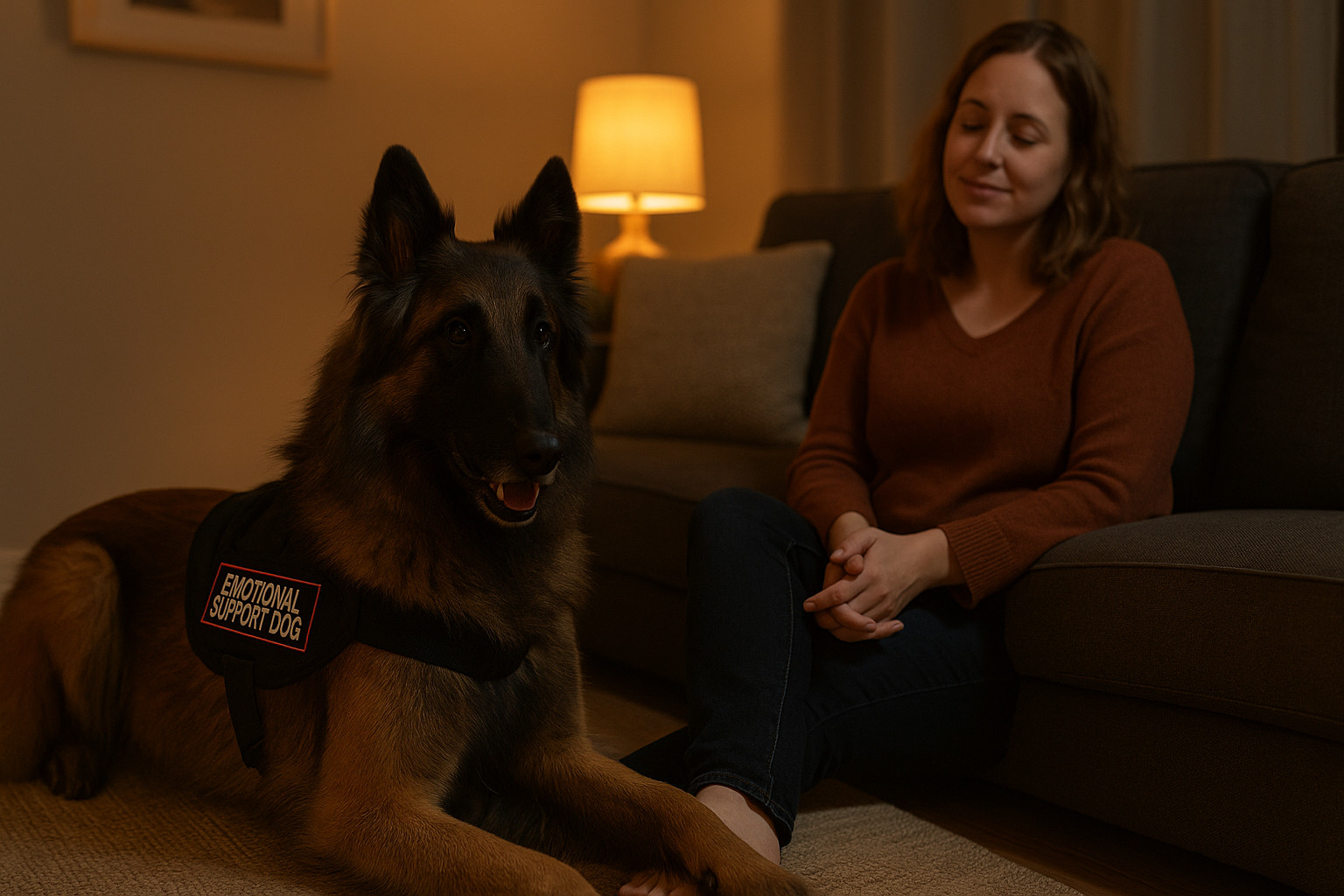
Belgian Tervuren as an Emotional Support Dog
The Belgian Tervuren, with its striking appearance and loyal nature, can serve as a profound source of emotional support for…

Bergamasco Sheepdog as an Emotional Support Dog
The Bergamasco Sheepdog, with its warm disposition and unique appearance, is garnering attention as a potentially remarkable emotional support dog.…

Berger Picard as an Emotional Support Dog
The Berger Picard, with its soulful eyes and loyal demeanor, stands as an exemplary emotional support dog. This charming breed…

Bernese Mountain Dog as an Emotional Support Dog
Understanding the Emotional Support Role Emotional support animals (ESAs) serve as comforting companions to individuals experiencing a range of emotional…

Bichon Frise as an Emotional Support Dog
Understanding the Emotional Support Role Emotional support animals (ESAs) play an essential part in providing comfort, companionship, and stability to…

Biewer Terrier as an Emotional Support Dog
The role of an emotional support animal (ESA) transcends simple companionship. It involves providing emotional stability and comfort to individuals…

Black Russian Terrier as an Emotional Support Dog
Emotional support animals (ESAs) play a vital role in the lives of many individuals facing mental and emotional health challenges.…

Bloodhound as an Emotional Support Dog
Understanding the Emotional Support Role Emotional support animals (ESAs) provide therapeutic benefits through companionship and affection to individuals suffering from…

Bluetick Coonhound as an Emotional Support Dog
The Bluetick Coonhound, with its stunning coat and melodious howl, is well-known in hunting circles. However, beyond their hunting prowess,…

Boerboel as an Emotional Support Dog
Understanding the Emotional Support Role An emotional support animal (ESA) holds a unique and crucial role in providing comfort to…

Border Collie as an Emotional Support Dog
The Border Collie, widely regarded for its intelligence and agility, holds a potential role surpassing that of traditional working capacities.…
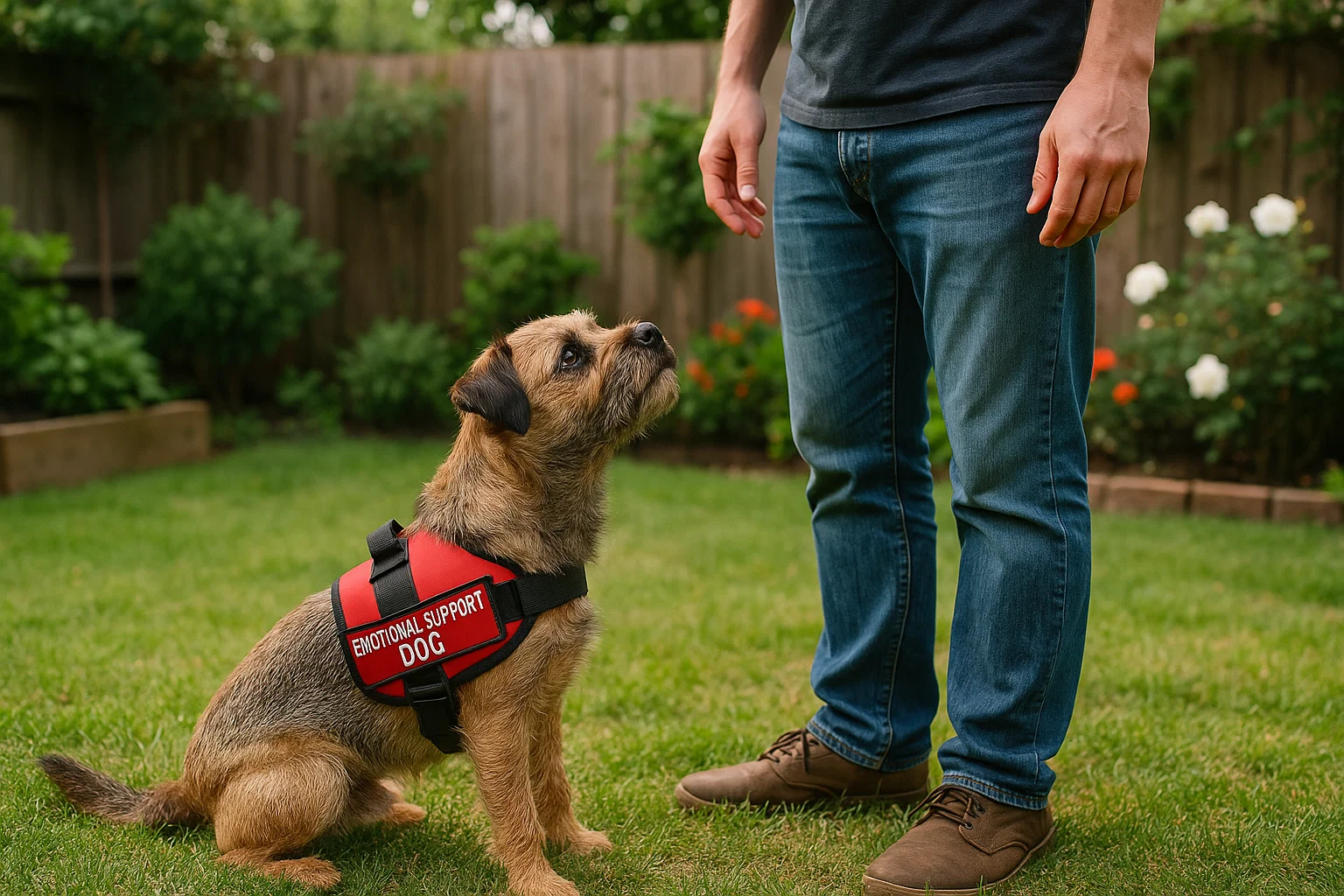
Border Terrier as an Emotional Support Dog
Understanding the Emotional Support Role Emotional support animals (ESAs) play a critical role in providing comfort and companionship to individuals…

Borzoi as an Emotional Support Dog
With their majestic appearance and gentle nature, Borzois, often known as Russian Wolfhounds, can provide profound emotional support to their…
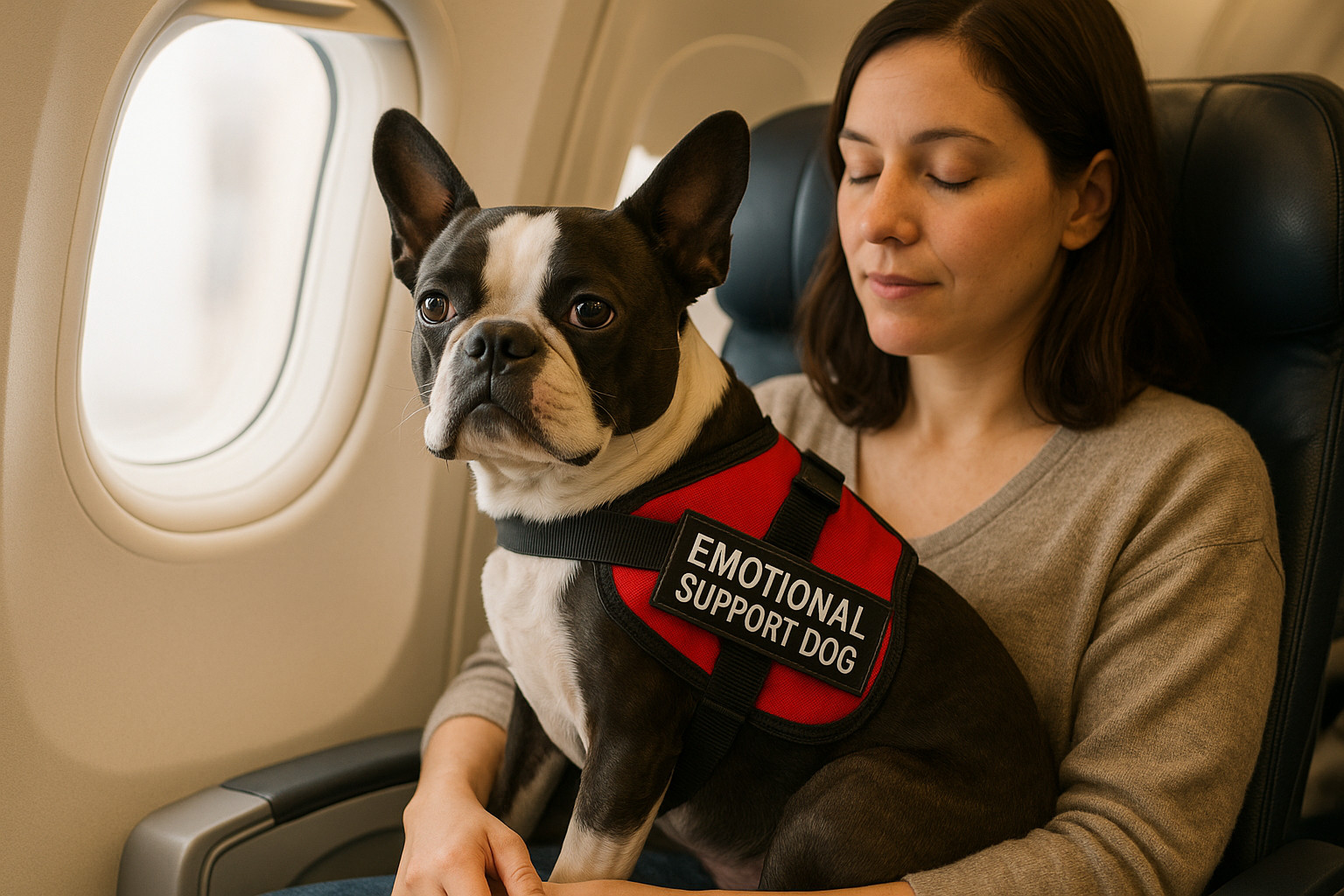
Boston Terrier as an Emotional Support Dog
Understanding the Emotional Support Role Emotional support animals (ESAs) fulfill a unique role by providing comfort and companionship to individuals…

Bouvier des Flandres as an Emotional Support Dog
The Bouvier des Flandres, a majestic and imposing breed, is often recognized for its versatility and strength. But beyond its…

Boxer as an Emotional Support Dog
In a world where stress and emotional challenges can deeply affect our well-being, the significance of emotional support dogs has…

Boykin Spaniel as an Emotional Support Dog
When searching for the perfect emotional support dog, the Boykin Spaniel stands out as a versatile and affectionate option. Known…

Bracco Italiano as an Emotional Support Dog
Understanding the Emotional Support Role Pets have long played a vital role in human lives, providing tangible and intangible benefits…
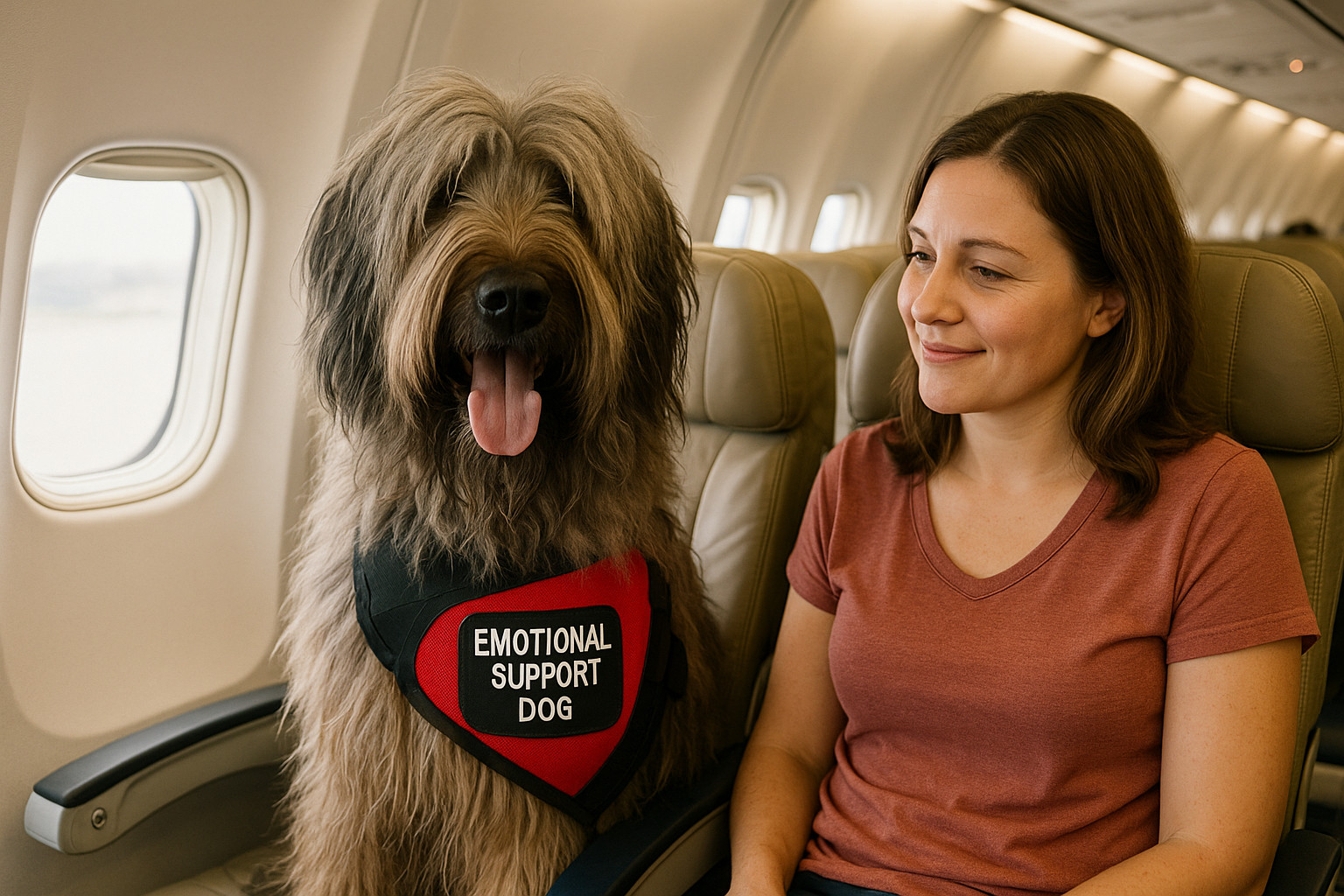
Briard as an Emotional Support Dog
Understanding the Emotional Support Role An emotional support animal (ESA) provides comfort and companionship to individuals experiencing mental or emotional…
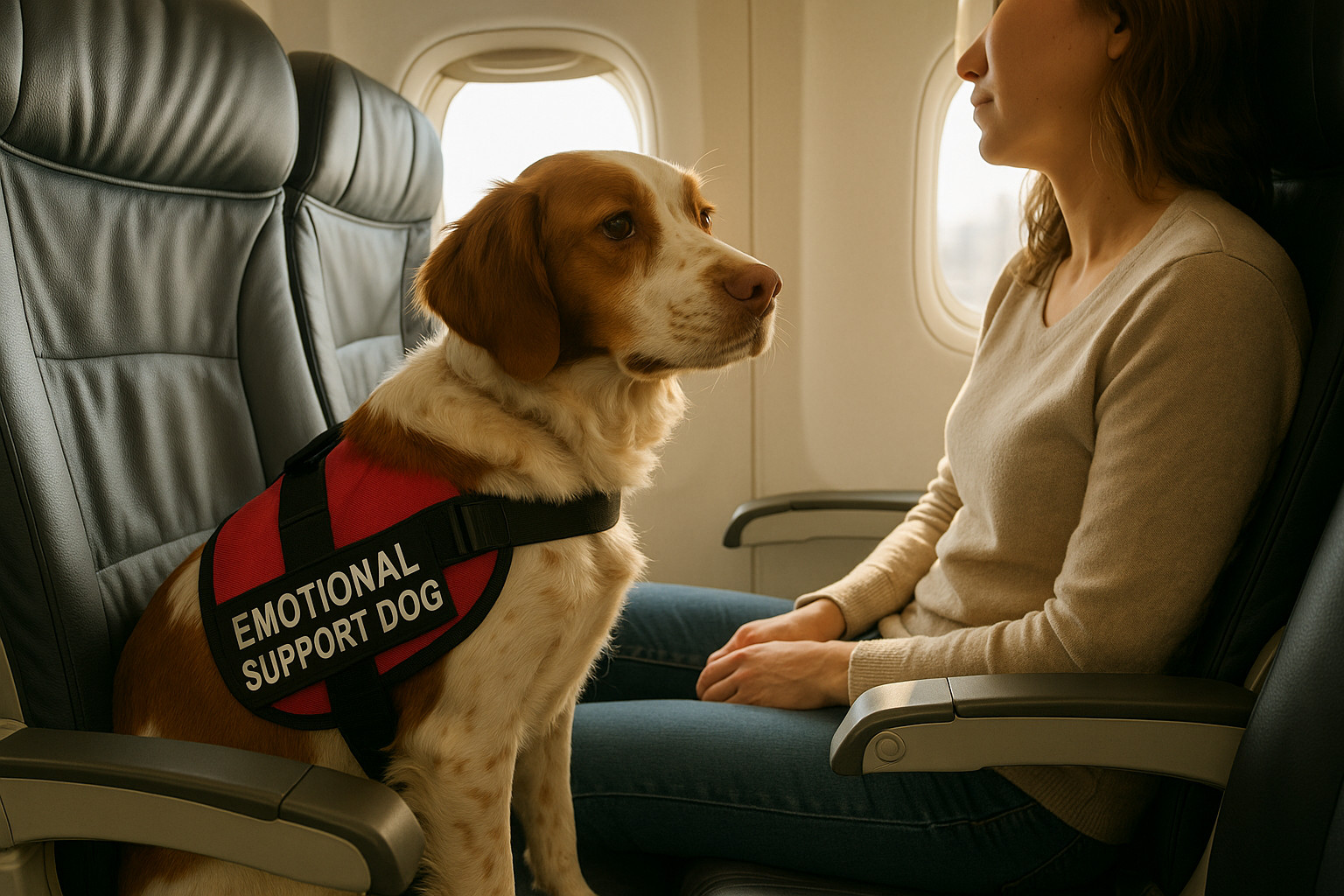
Brittany as an Emotional Support Dog
Understanding the Emotional Support Role Emotional support animals (ESAs) play a pivotal role in improving the mental well-being of individuals…
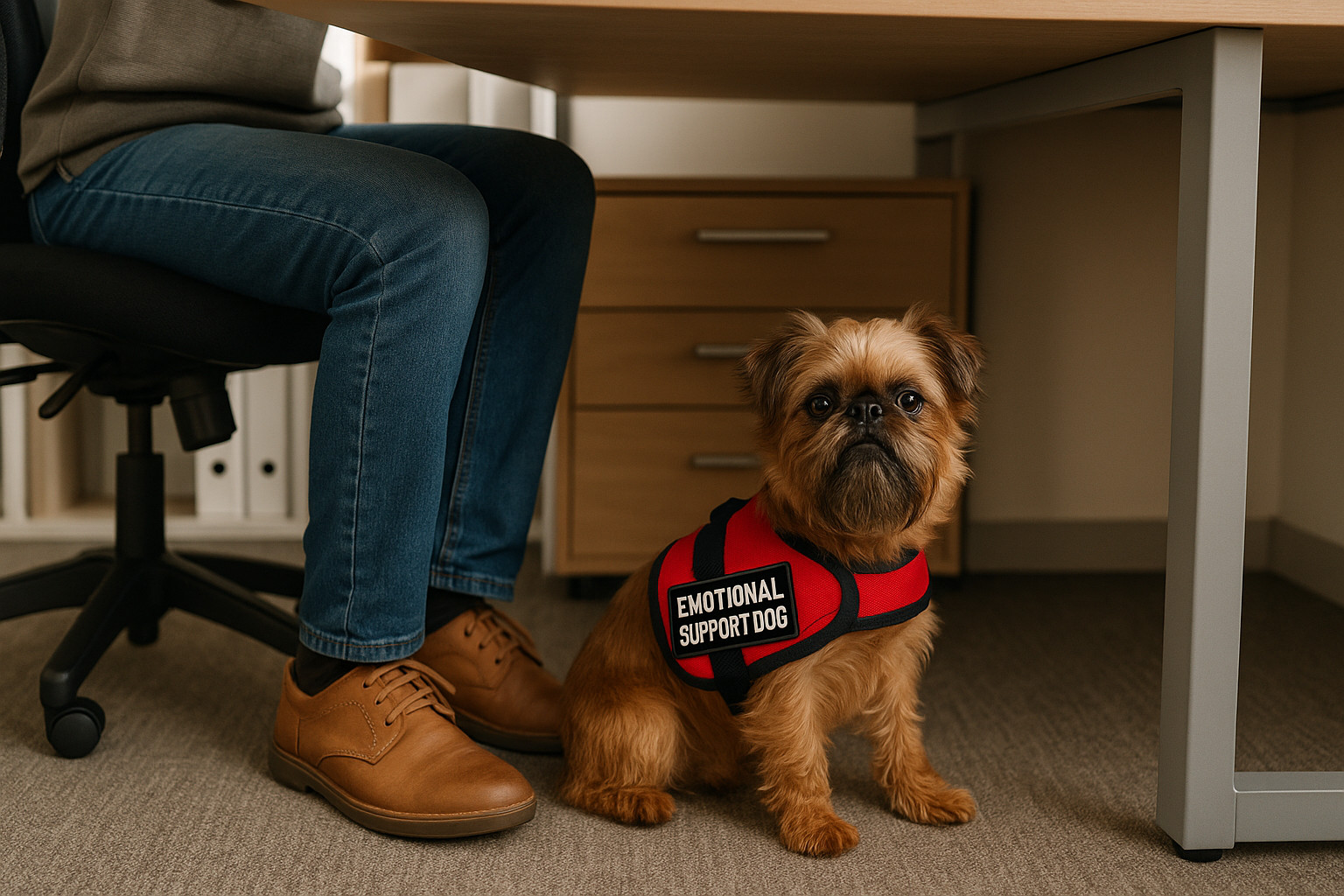
Brussels Griffon as an Emotional Support Dog
Understanding the Emotional Support Role Emotional support animals (ESAs) provide comfort, companionship, and emotional stability to individuals dealing with psychological…
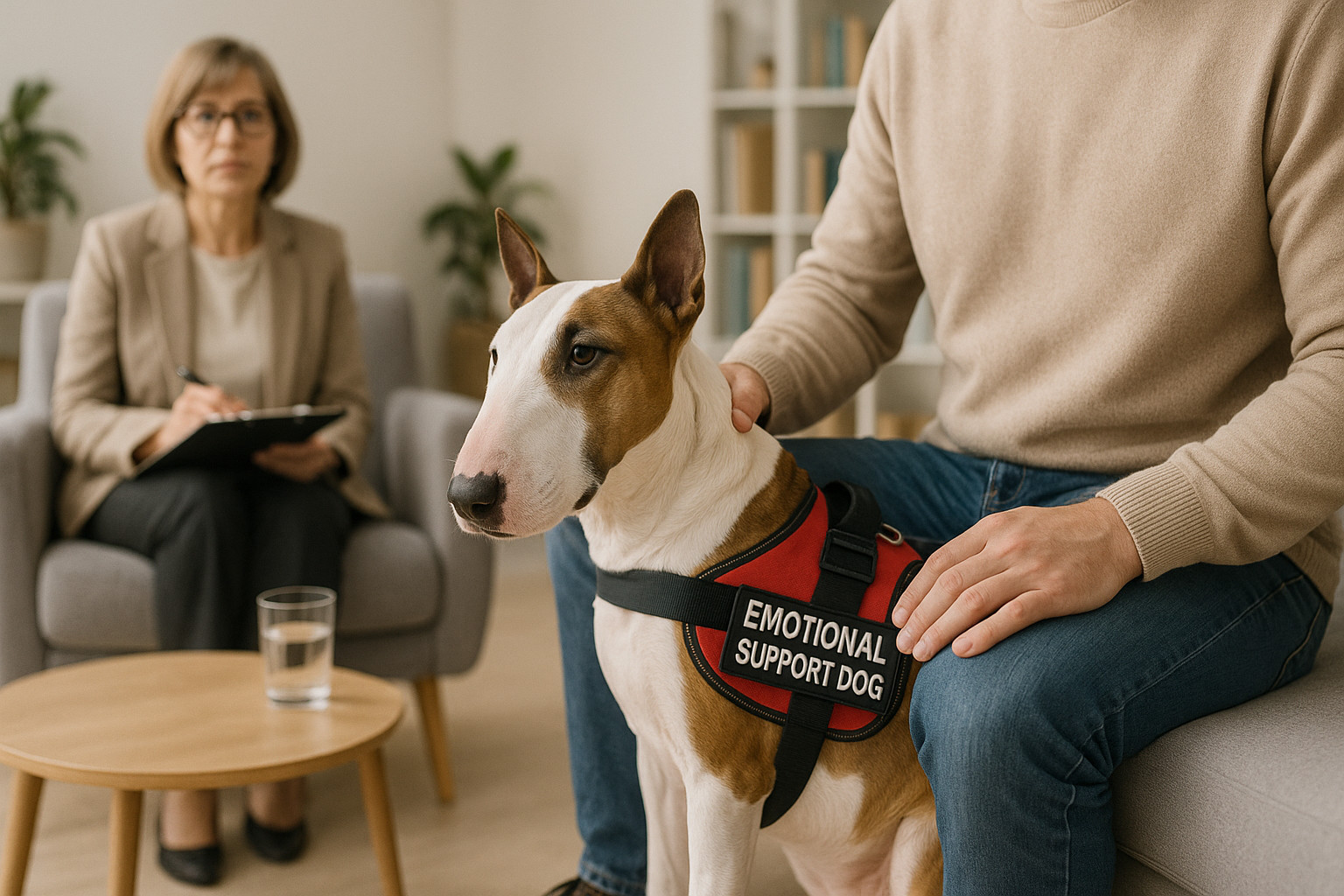
Bull Terrier as an Emotional Support Dog
Understanding the Emotional Support Role Emotional support animals (ESAs) play an invaluable part in the lives of many individuals by…

Bulldog as an Emotional Support Dog
Understanding the Emotional Support Role In a world where emotional well-being is becoming increasingly paramount, emotional support animals (ESAs) have…
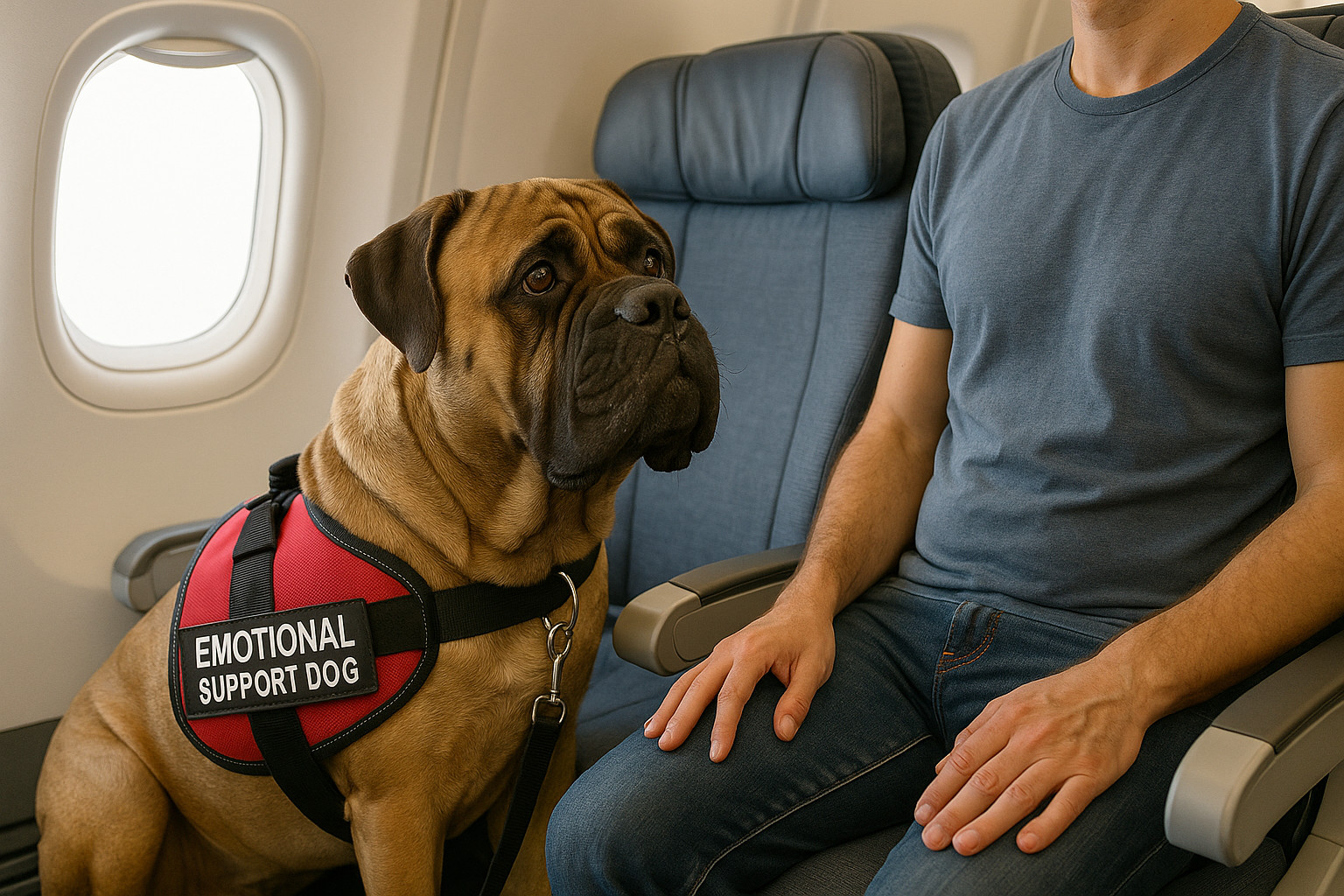
Bullmastiffs as an Emotional Support Dog
Bullmastiffs, with their imposing stature and gentle disposition, can make remarkable emotional support dogs. Ideal for those requiring emotional assistance,…



